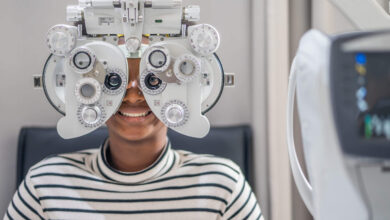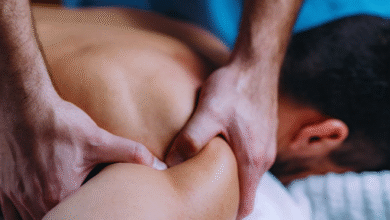The Unexpected Perks of Outpatient Rehab: Work, Family, and Recovery

Getting help for addiction is a brave step. Outpatient rehab has become a popular choice for many. It offers a flexible way to recover without pulling you out of your daily life. Beyond just helping you stay sober, outpatient programs can actually do a lot more—like helping you keep your job, stay connected with your family, and rebuild your confidence. Here’s a closer look at some unexpected benefits of outpatient rehab that might surprise you.
Benefits of Outpatient Rehab for Maintaining Employment
The Flexibility of Scheduling Allows Continued Work Commitments
One big advantage of outpatient rehab is the way it fits into your schedule. Most programs offer evening or weekend sessions, so you don’t have to miss work. This means you can keep earning your paycheck while still getting the support you need.
Research shows that people in outpatient programs are more likely to stay employed during their recovery. They don’t have to take extended leaves or risk losing their jobs. Staying employed gives you a sense of normalcy and helps with your self-esteem. It also keeps your financial stability intact, which can be a major stress reducer during recovery.
Reducing the Stigma of Absenteeism
Taking time off work for treatment can feel embarrassing or cause worry about what colleagues will say. Choosing outpatient rehab can lessen those concerns. You can keep your treatment private while still working full-time.
Many employees find that talking openly with their employer, or sometimes just mentioning a health issue, helps maintain trust. It’s often possible to set up a plan that keeps your employer in the loop without revealing too much. In the end, outpatient rehab can help you balance work and recovery smoothly.
Real-World Example
Take Sarah, a busy professional. She made a plan to attend outpatient therapy and support groups in the evenings. She kept her job, paid her bills, and still focused on her recovery. Today, she says that sticking with her work helped her stay motivated and gave her purpose while she healed.
Support for Family Dynamics During Treatment
Staying Connected: Continuous Family Involvement
Outpatient drug rehab Orange County plays a vital role in recovery. Outpatient programs often include family therapy. This keeps loved ones involved and supports everyone’s understanding. When families stay involved, the chances of lasting sobriety grow stronger.
Keeping routines consistent benefits everyone. Kids and partners can keep their schedules, while the individual in rehab continues their treatment. This ongoing connection creates a safe environment and encourages positive change.
Minimizing Disruption to Family Life
With outpatient rehab, you don’t have to leave your family behind. You can continue caring for your children and dependents. This makes recovery less disruptive and more sustainable.
Balancing treatment with family needs requires planning. Setting specific times for sessions and family activities helps. Therapists often suggest creating a home routine that supports both recovery and family bonding. Maintaining healthy family relationships boosts your chance of lasting recovery.
Real-World Example
Lisa, a mother of three, used outpatient rehab to stay close to her kids. She attended counseling after school, and her family supported her journey. Over time, their bond grew stronger as they faced challenges together.
Personal and Emotional Benefits of Outpatient Programs
Enhanced Autonomy and Responsibility
Outpatient rehab encourages you to take control of your recovery. It pushes you to build self-management skills, like tracking your progress and making healthy choices. This independence is critical for staying sober long-term.
Being responsible for your own healing boosts confidence. It feels good to see your own progress and know you’re in charge. It helps prepare you for life after rehab, where nobody will be there every step of the way.
Integration into Daily Routine Promotes Sustainability
Learning skills in real life makes a big difference. Outpatient programs help you practice dealing with stress, triggers, and cravings in your daily environment. This makes it easier to apply what you learn and maintain sobriety.
A regular routine with healthy habits, like exercise or meditation, can prevent relapse. According to addiction experts, creating routines outside rehab is key to long-term success.
Real-World Example
Mark, a recent outpatient graduate, shares how applying his new coping skills at work and home helped him feel more confident. His independence and sense of responsibility grew, making his recovery stronger each day.
How Outpatient Rehab Supports Long-Term Recovery
Continuous Access to Support Networks
Outpatient programs provide ongoing contact with counselors, peers, and support groups. This regular contact keeps you motivated and reduces feelings of loneliness.
In contrast, inpatient stays often cut you off from these connections once you leave. Outpatient programs build relationships that support your journey even after formal treatment ends. Data shows that ongoing support reduces the chance of relapse.
Promoting Healthy Lifestyle Changes
Life skills, relapse prevention strategies, and wellness routines are built into outpatient programs. Incorporating these habits outside of treatment helps you create a balanced life.
Simple actions like daily exercise, nutritious eating, or mindfulness practice can reinforce your recovery. These small steps make a big difference over time.
Expert Insights
Addiction specialists emphasize community support. When you feel connected and supported, cravings become easier to manage. Building a supportive network is essential for maintaining sobriety beyond rehab.
Conclusion
Outpatient rehab offers more than just a path to sobriety. It unlocks unexpected benefits—like keeping your job, staying close to your family, and gaining personal strength. This flexible approach adapts to your life, helping you recover without sacrificing what matters most. If you’re considering treatment, outpatient programs are worth exploring for their unique ability to foster a balanced, sustainable recovery.
Start your journey today—because recovery and life go hand in hand.




